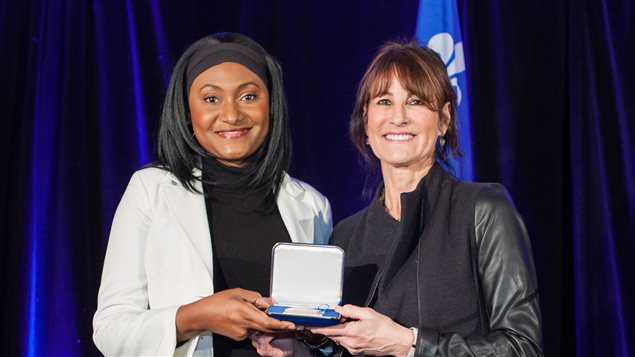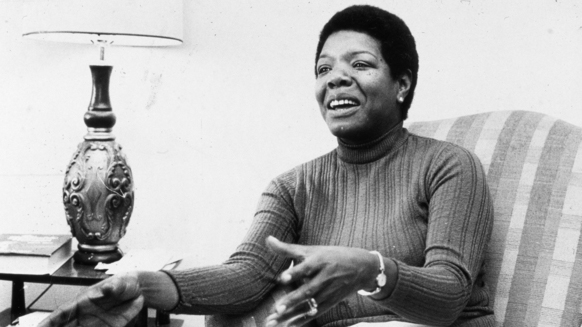Q&A: Fabienne Colas, Black Film Festival founder; ‘It’s not just a festival, it’s a movement’
Fabienne Colas, founder of Halifax’s Black Film Festival, speaks about equality

caption
Fabienne Colas, founder of the Halifax Black Film Festival, receiving an award for her work against discrimination.
caption
Fabienne Colas, founder of the Halifax Black Film Festival, receiving an award for her work against discrimination.The inaugural Halifax Black Film Festival will premier this Saturday at the Spatz Theatre.
Already prevalent in large cities like Toronto and Montreal, the festival is looking to share Canadian films that otherwise wouldn’t make it into theatres. The event is the work of award-winning actress, filmmaker and speaker, Fabienne Colas.
Originally from Haiti, Colas now calls Montreal home. She has helped establish several film festivals across Canada, working through the Fabienne Colas Foundation to establish these platforms for local filmmakers. Along with other films, the Halifax festival will present Maya Angelou: And Still I Rise, a documentary about the world of Angelou and the darker aspects of her life.
In anticipation of Saturday’s event, Colas spoke to The Signal about her hopes for Halifax’s inaugural festival and challenges for the future.
What does it mean to be able to bring this festival to Halifax?
This is a dream come true; we’ve always wanted to bring our festival to Halifax. People have been calling and reaching out to us through emails and text and private messages. People have been coming from Halifax to attend either the Toronto or Montreal Black film festivals or asking ‘when will you be bringing this festival to Halifax?’ So, it was really a matter of when and 2017 is a dream year for us because we’ve made it happen. We’re very happy to dedicate this whole edition to Viola Desmond and to have the spotlight showcase the life of Maya Angelou on screen. We believe that this is a great film that is going to kick things off and it will be a great night.
How did you come up with the idea for a black film festival and where did it start?
Well, I live in Montreal, so it was a natural place for me to start. My story began when I came to Montreal a little over 13 years ago as an actress. I won an award for a film there and was the most popular actress from Haiti. Given that the Haitian community is probably the largest black group in Montreal, I thought it would be easy for me to screen the film. Unfortunately, no festival wanted to showcase the project … this is when I decided to create the Fabienne Colas Foundation in Canada and the first project was the Montreal Haitian Film Festival which, five years later, extended itself and became the Montreal Black Film Festival. What started out as a frustration over not having a voice, of not having a platform to tell our stories, made it necessary to start a festival. In Toronto, it was very easy to extend ourselves. But Halifax was constantly on our minds because of the strong history of the black community. It really was just a matter of when. And we feel so blessed and happy that Halifax has embraced the idea and is really looking to support it.
The festival itself is dedicated to giving a platform for the unique voices in cinema. Can you talk about the voice that will be represented in Maya Angelou: And Still I Rise?
This year, this inaugural edition, is an introduction hopefully to the larger event that we are preparing for next year. This year is only going to be one night but it is going to be one heck of a night, It was important for us to allow people in Halifax to have access to films that the people wouldn’t have seen otherwise. This is what it’s all about. We’re happy to have someone as extraordinary as Rita Coburn Whack, who co-directed this film alongside Bob Hercules. She will be here on Saturday to introduce the film but also to have a great discussion and Q and A with the audience. It’s all about having the Halifax people meet her, to meet Nova Scotians, so that they have a platform. We want to create a platform for local filmmakers for years to come. We had a guy recently in Toronto, a black filmmaker, who came to us and said, ‘thank you so much. Because of this festival, I can go and make films because I will have a platform to screen them.’ These are the reasons why we keep trying to spread diversity on screen, all over Canada.”

caption
The film is the first documentary about Maya Angelou and looks to explore her trials and triumphs.Viola Desmond, a famous Nova Scotian, is one of the listed honourees. What does it mean to be able to honour her through the festival?
Well, it means a lot for all of us. She is our own Rosa Parks. She has done things that are historic and heroic, in a time when you’d go to jail for sitting in a seat in a theatre that was reserved for white folks. It was a heroic and courageous act in an unfair time. We want her story to live on and we want people on Saturday to relive this with us. And what a great timing. It is the 150th anniversary of Canada and she will be on the $10 bill next year. We couldn’t be happier.
Is there any one thing you want people to know about the festival?
This is not just a festival; it’s a movement. I don’t want people to just talk about it; I want people to take action. I want people to be able to say that they were there at Halifax’s first edition. I want people to say ‘I was there to support (it).’
This interview has been condensed and edited for clarity.

